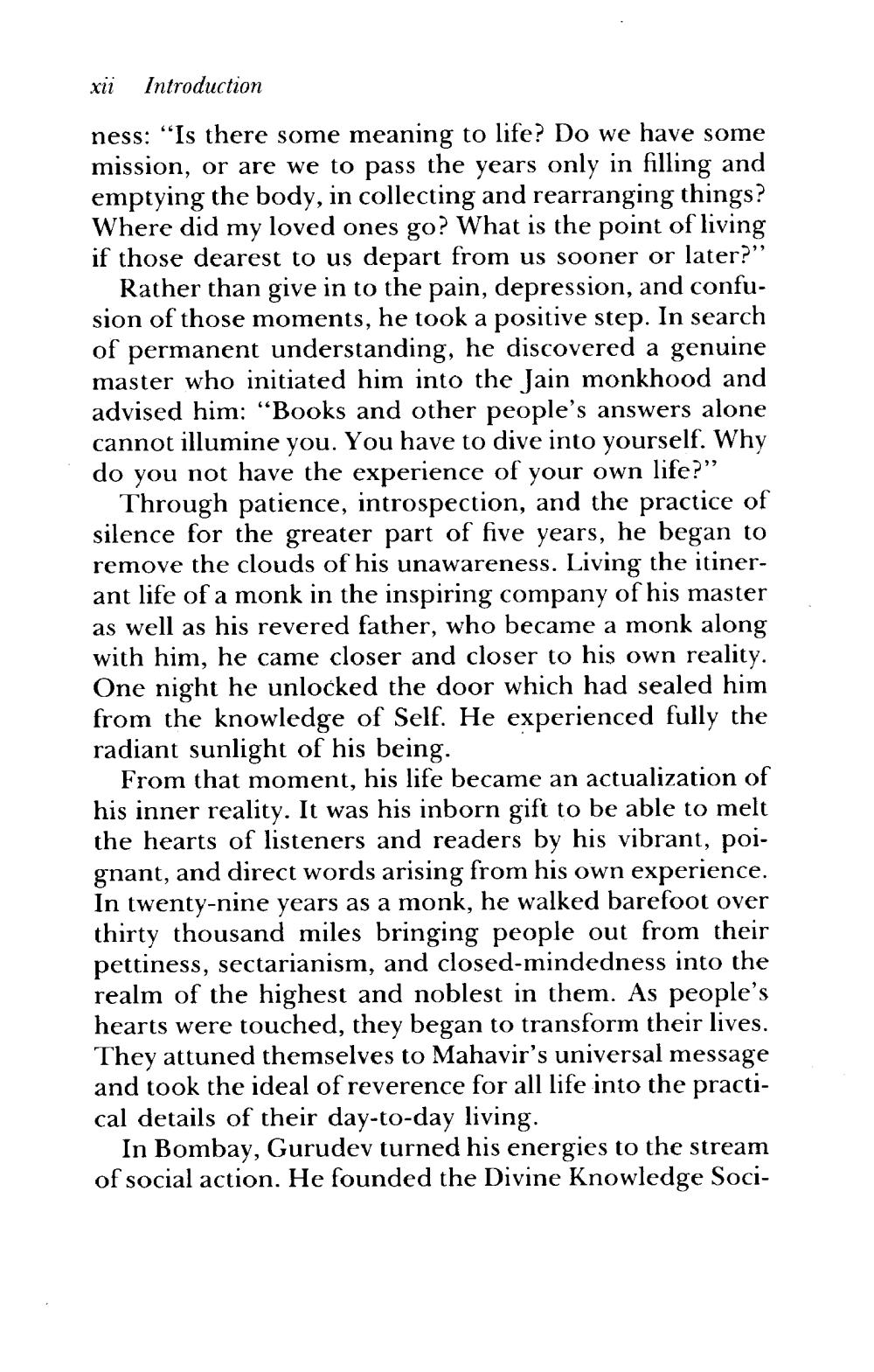________________
xii
Introduction
ness: "Is there some meaning to life? Do we have some mission, or are we to pass the years only in filling and emptying the body, in collecting and rearranging things? Where did my loved ones go? What is the point of living if those dearest to us depart from us sooner or later?”
Rather than give in to the pain, depression, and confusion of those moments, he took a positive step. In search of permanent understanding, he discovered a genuine master who initiated him into the Jain monkhood and advised him: “Books and other people's answers alone cannot illumine you. You have to dive into yourself. Why do you not have the experience of your own life?”
Through patience, introspection, and the practice of silence for the greater part of five years, he began to remove the clouds of his unawareness. Living the itinerant life of a monk in the inspiring company of his master as well as his revered father, who became a monk along with him, he came closer and closer to his own reality. One night he unlocked the door which had sealed him from the knowledge of Self. He experienced fully the radiant sunlight of his being.
From that moment, his life became an actualization of his inner reality. It was his inborn gift to be able to melt the hearts of listeners and readers by his vibrant, poignant, and direct words arising from his own experience. In twenty-nine years as a monk, he walked barefoot over thirty thousand miles bringing people out from their pettiness, sectarianism, and closed-mindedness into the realm of the highest and noblest in them. As people's hearts were touched, they began to transform their lives. They attuned themselves to Mahavir's universal message and took the ideal of reverence for all life into the practical details of their day-to-day living.
In Bombay, Gurudev turned his energies to the stream of social action. He founded the Divine Knowledge Soci




